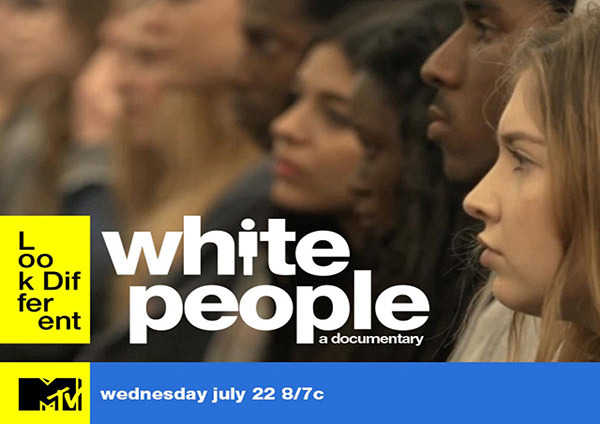Like the robot in a movie slowly discovering that it is, indeed, a robot, it feels as though we are living in the moment when white people, on a generational scale, have become self-aware. It’s one of the strange byproducts of the Obama era that many white people have begun to understand themselves in the explicit terms of identity politics, long the province of those on the margins. The nature of whiteness isn’t a new discussion, by any means, but it has never seemed quite so animated. There are the honest accounts of privilege and pride, shame and tears, what it means to be an ally or aggressor, the newly casual way that “white supremacy” gets dropped into everyday conversation. But there are also the online manifestos, the anxieties over census figures, and the controversies over the Confederate flag and the defensively prideful who refuse to feel badly about their white skin.
In this peculiar context, MTV recently premièred a short documentary titled “White People.” It follows the journalist and immigration-rights activist Jose Antonio Vargas as he meets a series of good-natured white people in fish-out-of-water racial tableaus. There are conversations at the dinner table and in school cafeterias, conversations that look more like interventions. It’s an eclectic bunch: the chummy Southerner from an all-white town who inexplicably attends a historically black college; the white teachers at an Indian reservation who had never before experienced the feeling of being outnumbered; the white girl who blames her failure to nab a college scholarship on affirmative action; the open-minded son of Italian immigrants skeptical about all the strange new Chinese immigrants. Throughout it all, Vargas is our able guide, part inquisitor and part instigator, prodding these white people and their wondrous presuppositions, arching his brow whenever someone says something “problematic.”
“White People” now lives online, part of the network’s broader “Look Different” campaign to spark an ongoing conversation about diversity and tolerance among its viewers. It’s easy to dismiss “White People” as superficial or, worse yet, naïve; all of its epiphanies feel safe and stage-managed, largely because each of the set pieces is presented as a problem to be solved. And, save for a stubborn old man who attends but can’t quite wrap his head around his stepson’s white-privilege workshop, Vargas always finds a way to persuade his white people to see things differently. Sometimes it’s with the assistance of a quick history lesson or a handy statistic about who really benefits from college scholarships; other times, it’s just an invitation to reckon with the person sitting across the table. Time and again, the answer involves consciousness, that internal switch that gets flipped, changing one’s perspective forever. But what if awareness isn’t enough?
Now more than ever, we are skeptical about progress on so micro a level: the promise of friendship, the idea that mere exposure to difference is enough. This isn’t to dismiss the life-changing effect these interactions might have on our lives or the baseline of dignity demanded by movements like Black Lives Matter. It’s just to say that interracial good vibes alone probably aren’t the basis for visionary social policy. It’s barely the premise for compelling television.
